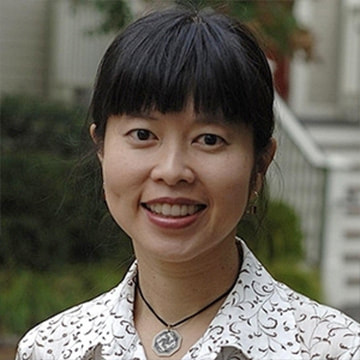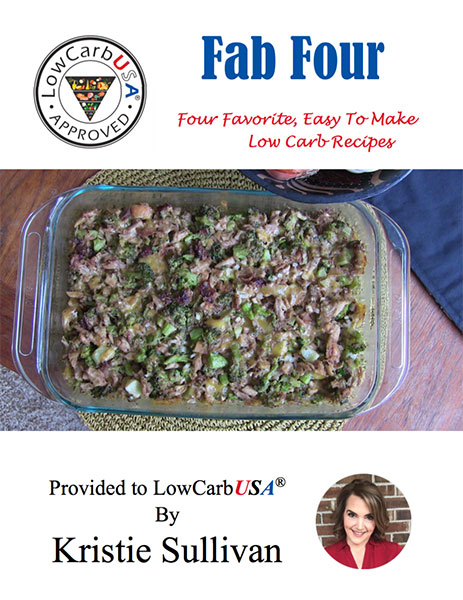
Special Low Carb Boca Presentation Available to All
Dr. Loh will deliver a special presentation on Friday, January 15, at the 2022 Low Carb Boca Conference, in which she will address several issues related to gaps in care that occur for a variety of reasons within diverse communities.
The presentation will be a collaboration between her clinic, Transform Alliance for Health, and LowCarbUSA® as part of the celebration and annual awareness campaign she’s been doing for Martin Luther King Jr. Day, which falls on the Monday immediately after the conference.
Dr. Loh, who serves as a member of the Outreach Committee for the Society of Metabolic Health Practitioners (SMHP), plans to speak about specific differences in metabolic health within different ethnicities, and about racial disparities in health care. As part of the collaboration, Dr. Loh’s presentation will be available not only to conference attendees, but streamed for the public as well.
“We want to encourage more diversity in the low-carb community,” said Dr. Loh. “In general, we want to encourage more participation from different ethnicities, different groups, that might not traditionally have been participating in the low-carb world, both among practitioners and those looking to improve their own metabolic health.”
The opportunity to view the livestream of this presentation will be made available to many organizations, including churches, community centers, and medical organizations. Stay tuned for more information about how you can access this special presentation at no charge. If you represent or know of an organization that would benefit from gaining access to the livestream, please contact us at email: support(at)lowcarbusa.org.
The presentation will address a wide range of issues, including inequities that occur in the health care people of different ethnicity and race receive, as well as some of the reasons for these discrepancies. Dr. Loh also plans to discuss the lack of attention paid by the medical community to physiologic differences between different ethnicities.
“The assumption is that all patients are a white, Caucasian, male, usually,” said Dr. Loh. “Studies are usually done on that group and recommendations are typically based on that group. And it’s as if we are all the same, but there are differences and we need to recognize those differences.”
Dr Loh says we need to pay better attention to these physiologic differences so that we can have a better screening process and better treatments for patients.
“I look at the differences in levels of insulin between blacks, East Asians and Caucasians, and there are clear differences,” said Dr. Loh, “and this should inform us as to how we might be screening and also how we might actually develop different treatment plans. If we’re not looking at these things, we actually miss a lot.”
Examples of differences that are based, in part, due to ethnicity and race include visceral vs. subcutaneous fat accumulations, insulin sensitivity, and insulin response, among others.
“We need to start to pay more attention and not treat everyone as if they are the same,” said Dr. Loh. “I want clinicians to be able to see the nuances, to be aware to look out for these differences, because it will make a difference in how we screen and treat the patient. “
Topics Dr. Loh plans to discuss during her presentation include blood pressure and hypertension, as well as some of the resulting problems including kidney failure.
Dr. Loh looks forward to the day when there is more diversity among the practitioners themselves, both in the larger medical community, but also within the low carb community.
“I think when people start to see participation from people who look like them, people with a shared background, then I think we’ll see more willingness to listen and trust. Lack of trust has been an issue that has divided us in the healthcare world.”
As part of her role on the SMHP Outreach Committee, Dr. Loh will work to reach diverse ethnic communities with the organization’s message, and advocate for research into differences in metabolic risk and the response to lifestyle interventions based on ethnicity.
The SHMP is a non-profit organization that represents all researchers and practitioners working to improve metabolic health around the world through education, training, and support of evidence-based nutritional approaches, including carbohydrate restriction, as a valid therapeutic option or intervention.
Dr. Loh said she is enthusiastic and supportive of the SMHP’s efforts to educate practitioners about the value of therapeutic carbohydrate restriction, and in developing Clinical Guidelines that can help in that process.
The Clinical Guidelines provide clinicians with a general protocol for implementing therapeutic carbohydrate restriction as a dietary intervention in hospitals or clinics. The guidelines are meant to be applied as a dietary intervention for specific conditions for which carbohydrate reduction has been shown to offer therapeutic benefits.
“Getting this information to the clinicians is really important, and I also believe we need to continue to get the message out to the general population,” said Dr. Loh. “There is definitely a need that has been identified, and I love that this community has come together to address that need. Up until recently there hasn’t been a lot of material or resources and this is important.”
When Dr. Vyvyane Loh looks back on her medical school education, she recalls receiving virtually no training in the area of nutrition.
“I didn’t learn anything about nutrition in medical school,” she said, “Nutrition wasn’t even important enough for them to have spent an hour on it in medical school.”
Dr. Loh says it was a patient interaction that ultimately led her to information about nutrition that has transformed her career.
“I had always been interested personally in nutrition,” said Dr. Loh, “but it was a patient who was struggling with her weight that really got me started with looking into low-carb nutrition.”
The patient had discovered the Atkins Diet, and told Dr. Loh the diet had worked for her family members, and that she was going to try it.
“She asked me if I knew anything about it, and I didn’t, but I decided to try it with her and figure it out together.”
Dr. Loh was stunned that within days of adopting a low-carb way of eating, all her symptoms she had previously attributed to irritable bowl syndrome disappeared. She also lowered her A1c levels and reversed her pre-diabetes.
Dr. Loh, who is board-certified in Obesity Medicine and Internal Medicine, has been using therapeutic carbohydrate restriction (TCR) as a tool to help patients ever since.
Dr. Loh remains concerned about the current state of our medical system for a host of reasons.
“If we’re not going to identify and address the elephant in the room, which is that 88% of Americans have metabolic dysfunction, which is the cause of many chronic diseases, then there really isn’t a future for the medical system. Our medical system is untenable, it’s not sustainable, and it’s continuing to crash.”
Dr Loh also delivered a compelling lecture encompassing much of the above with a different take at last year’s virtual 2021 Low Carb Boca Conference. If you registered for the conference use your access to re-watch it and any of the presentations again, or you can sign up for the Low Carb USA Premium Membership and see it and all past and future livestream presentations!
Dr Loh was also featured in Episode 57 of the LowCarbUSA® Podcast.

